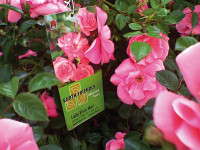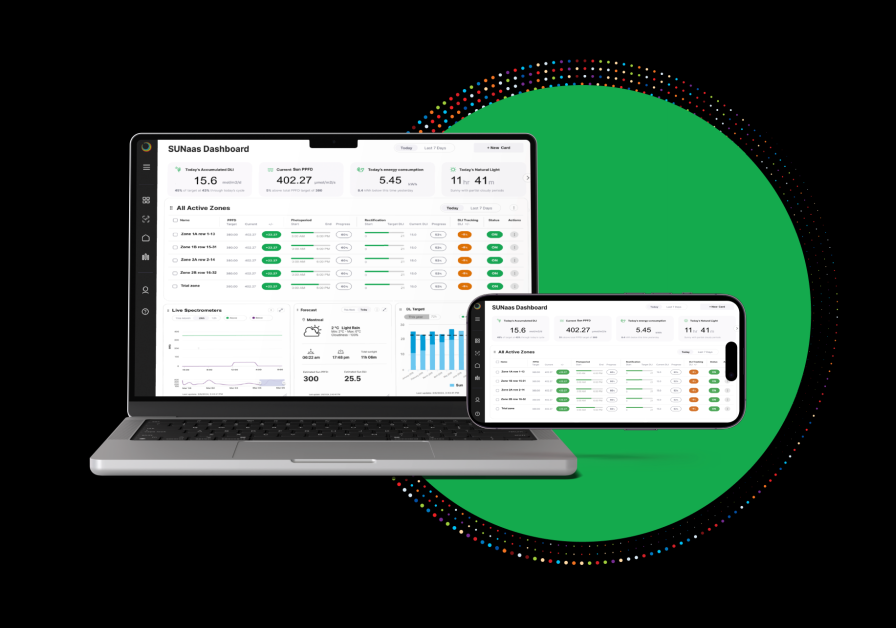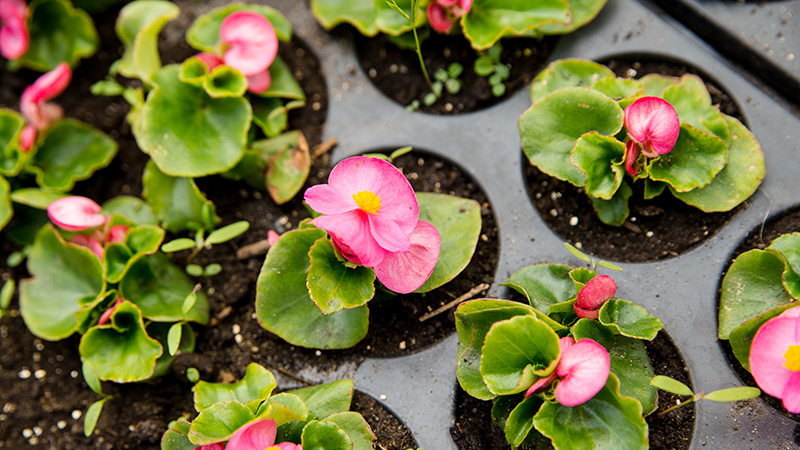Growing Green: Marketing Sustainability

Gary McColeman of Bellan International watched closely as the sustainability revolution took off in the United States.
McColeman’s company manufactures biopots–biodegradable containers made of rice husks, bamboo and straw. The pots made their debut three years ago at OFA Short Course, and McColeman has since seen an evolution as some ornamentals growers transitioned from skepticism to adoption of sustainable practices.
“The first year … they stood across the aisle and scratched their heads,” he says. “The second year it was like an evangelical movement; people moved inside the booth and they picked it up and felt it, squeezed it and broke it.
“They knew a little bit more about the environment at this point.”
This year, Short Course has a Green Industry Showcase to highlight sustainable products. And McColeman says the push is definitely coming from the end consumer and big retailers who are making sustainability a priority, such as Home Depot and Wal-Mart. But he adds that the small to mid-sized growers are really the ones he sees jumping on board, especially with the biopots.
So the question for Bellan International became how to help growers market these products. The answer is in marketing and public relations materials provided free to the grower to help promote their sustainable products.
“This is not for the mega retailer–they don’t need something like this,” McColeman says. “It’s for the mom and pop smaller retailer who’s going to make their own signage. We gave them some ideas of what they can do to describe it or tell the consumer what this is.”
The materials include three pre-done press releases with blanks so the retailer can fill in their own information and send it to local media outlets. It also includes sign verbiage that can be personalized to fit the retailers’ needs, accentuating the earth-friendly qualities of the biopots.
Ball Horticultural Co. also realized the need to support sustainable activities, including its Circle of Life program, which features biodegradable, compostable pots, organically based fertilizers, microbial soil additives and locally grown plants.
The Circle of Life point-of-purchase materials have been redesigned for a stronger environmental message and clearer benefits for the consumers. “We decided to evolve the message to ‘Start Your Eco-Friendly Garden’ after realizing that sustainable gardening is really in its infancy for mainstream gardeners,” explains Ball Business Manager–Independent Garden Centers Bill Calkins. “Circle of Life is an awesome introduction to sustainable gardening and a little education from retailers will help encourage consumers to continue the sustainable growing practices that produced these tremendously healthy plants.”
The POP includes posters, pole signs, bench tape and stake tags so retailers have multiple options. There’s also a Web site supporting the program, at www.circleoflifeplants.com.
Another benefit of the program is its flexibility–there’s no line of plants per se. Growers and retailers can integrate their own options under the Circle of Life banner. “We don’t have a total number of growers or retailers carrying the program because different customers pick up different parts of the program,” Calkins adds. “Flexibility is one of the benefits. However, we have seen a steady increase of participants–growers and retailers–through the years, from single digits in 2005 to more than 100 now.”
Using Sustainable Marketing Tools
Some of the best ways growers and retailers can show their support of the environment is to use sustainable materials for signage and tags, especially in conjunction with sustainably grown products. Several of the marketing companies in the horticulture industry have come up with sustainable options.
John Henry, for example, has five options for stake tags, posters, carriers and bench cards that growers and retailers can mix and match to promote earth-friendly products. They are: EcoRecycle, EcoHarvest, EcoEarth, EcoFiber and EcoPaper. The options rolled out at Pack Trials this spring, and can be customized based on individual needs.
“We had lots of interest and it’s a burning hot topic right now,” says Jon Leua, product manager at John Henry. “Everyone’s taking a look at it right now and saying: ‘Economically, can I go green?'”
That’s the beauty of the Eco offerings, he adds. It’s not an all or none proposition–growers and retailers can pick which one works best with their operations.
Bob Lovejoy, president of HIP Labels, also understands the demand for eco-friendly solutions. His company came out more than three years ago with Repel, a water-repellant recycled paper made of 30 percent post-consumer waste. This year, his company introduced BioTags and EcoTags. EcoTags are degradable plastic, so they break down in one to five years. The BioTags are biodegradable plastic and break down in a year.
“More and more people are at least open to looking at labels and tags as one step toward becoming more sustainable in their customers’ eyes and doing the right thing for the environment,” Lovejoy notes.
He recommends growers and retailers focus on talking about using renewable resources and recycling when promoting their products. Everyone can identify with plastic lying around, he adds–so make sure customers know the pots, tags and anything else that’s biodegradable won’t be taking up landfill space.
“In order to really do a good job they need to be educated, they need to know what these terms mean and speak from an informed standpoint,” Lovejoy says of those looking to promote sustainable products.
A Fitting Solution
MasterTag has come out with its own line of sustainable labels, called Evo. There’s a stake label made from recycled materials and is recyclable, as well as a hang label, handle, display card and bench/cart strips made of biodegradable plastic.
And MasterTag also has partnered with multiple growers to offer labeling for sustainable product lines, such as Elzinga & Hoeksema Greenhouses’ Fresh Flavors Organic line of veggies and herbs. Bell Nursery uses MasterTag products to support its Naturally Grown organic line, as well.
But Creative Director Gerry Giorgio stresses the search for sustainable marketing products, just like any other sustainable product, is an evolution.
“We definitely have plans for more,” he says. “This is an evolutionary process that will not rest on one single product introduction. We have tested and continue to test many different substrates and will introduce new options to the market once we are certain they will perform to the expectations of our customers.”
The key is making sure the products perform well and are beneficial in the ways claimed, he adds.
“It would be a mistake to look at the products you see today making sustainable claims and think that we have arrived at some solution. Or that an ultimate solution is just around the corner. We have likely entered an era of a continued look toward how we can live in a sustainable way.”









